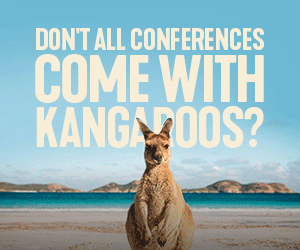“Organisations need to embed environmental considerations into all of their processes”

If you want to find any positive upshots out of this pandemic, just stop for a second and look around. The way the world changed during these lockdowns, not only made us aware of the fragility of our roofs, but also led us back to our true "home": Planet Earth. The Environmental Coalition On Standards (ECOS) is an international NGO, established in 2001, to enhance the voice of the environment within standardisation systems. Chloé Fayole (photo below), Programme & Strategy Director, explained why we shouldn't take that for granted.
1) How did ECOS manage all the restrictions and setbacks caused by the pandemic this past year?
The COVID-19 pandemic shook the global economy in many ways. Of course, it impacted our working habits as we had to adapt to teleworking almost overnight, and it also created new challenges related to organising our policy outreach. Despite the challenges, we have continued defending the need for robust legislation and standards to protect our planet. Over the past year, many files that are key to our transition to a circular economy have gone through decisive steps. We have also achieved to deflect industry attempts to delay, or even weaken, hard-won political achievements on EU policies such as the Single Use Plastics directive, and ecodesign and energy labelling rules for home appliances.
2) What are the long-term benefits that COVID-19 has brought to societies, organisations and companies in terms of climate action?
It is true that the pandemic has brought along a temporary drop in CO2 emissions. However, despite lockdowns in many countries, worldwide CO2 emissions have been cut by only 6.4%, and that is not enough to prevent our planet from heating more than 1.5ºC above pre-industrial levels, as UN estimations show. This is clear proof that, if we want to avoid the effects of climate change, decision-makers need to take serious actions and commitments – and do so as soon as possible. We hope that the COVID-19 pandemic will be a wake-up call for those who still try to avoid systemic change by putting forward empty pledges and greenwashing strategies.

Climate considerations need to be omnipresent if we are to stand a chance of preserving our planet for future generations. At the moment, there are plenty of policies and standards in the making that will be key to our future. One of the main issues on our agenda this year is the EU’s Sustainable Products Initiative (SPI), a commitment by the European Commission that will extend the principle of ecodesign to all products, including construction materials, furniture and textiles. Today, many of our appliances need to comply with minimum requirements to be allowed on the market. Thanks to the SPI, the same principle could be applied to more products, aiming to make them sustainable by default.
4) How can technology act as an environmental ally and help associations achieve their sustainable goals?
Technology brings a number of important solutions to our daily lives and that’s more evident today than ever. It can significantly reduce corporate travel and simplify information exchange, for instance. However, digitalisation also comes at a cost to our environment and climate, and tackling those impacts should be recognised as an urgent priority. The production and use of our electronic devices is estimated to be responsible for some 12% of total greenhouse gas emissions by 2040 – 1.5 times more than the global transport sector. Without urgent measures to reduce the number of devices we use, extend their useful lifetime as well as action to reduce their energy consumption, the environmental benefits of digitalisation will unfortunately be significantly outweighed by the pressure they pose on the environment.
5) How can education help people embrace this circular economy?
Every day, we are bombarded with claims on how products on the market supposedly help the planet. But many of these claims are not true, and often are not based on reliable information or calculation methods. We need to provide citizens and markets with clear information on environmental performance of products and activities so that they have the tools to make conscious choices to reduce their personal environmental impact.
6) What kind of tips and advice does ECOS recommend for destinations to become more responsible for the ecological footprint of their events?
The best type of waste is the one that is not produced. As a first step, meeting organisers should try to cut on materials altogether, eliminating those that are not really needed; a good example are those small gadgets that end up in a forgotten drawer at home, but also at the office. Every year, each of us throws away 6.1 kg of electronic waste on an average, according to 2016 data. The best way to act responsibly when organising an event is not to add to this figure. Another important source of waste during events are single-use plates and drinking cups. Implementing systems for refill and reuse in the venue can dramatically cut the generation of this kind of waste, and organisers should use their caterers with sustainable solutions in mind.
7) How can associations keep up with these changes and adjust to a new framework without losing focus on their members' priorities?
In order to avoid the worst consequences of global warming, everyone needs to do their bit. If associations take the impacts of their activities into account, they will take better decisions, which, in turn, will result in sustainable long-term results. To do that, organisations need to embed environmental considerations into all of their processes and activities.
Other Articles
About Us
Supported by the Union of International Associations (UIA), the International Association of Professional Congress Organisers (IAPCO) and the Interel Group, the global public affairs and association management consultancy, Headquarters Magazines serve the needs of international associations organising worldwide congresses.















